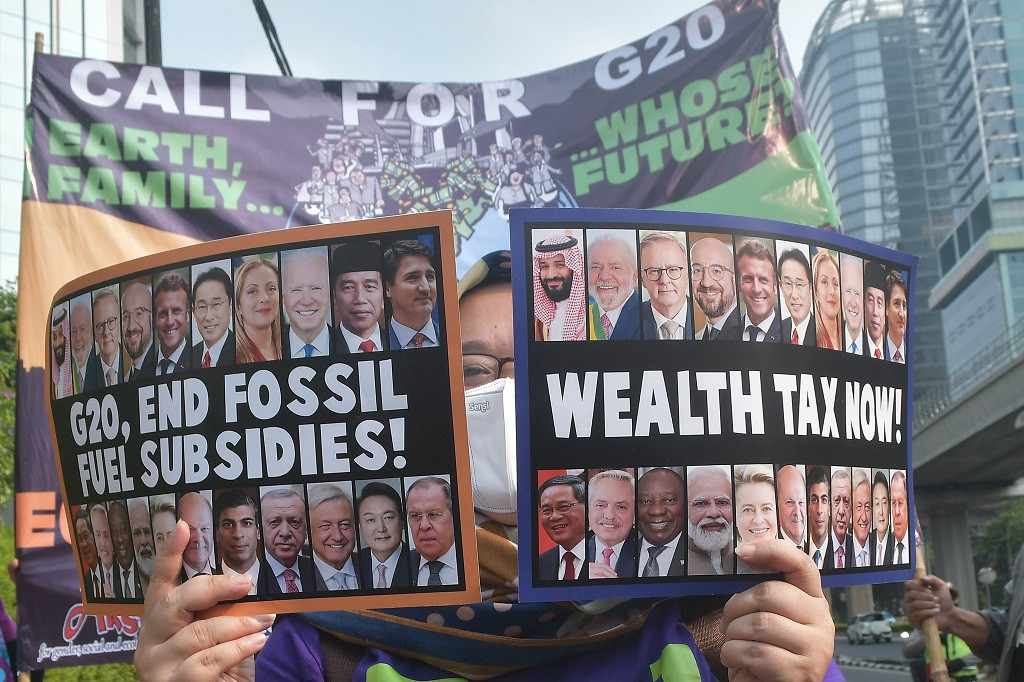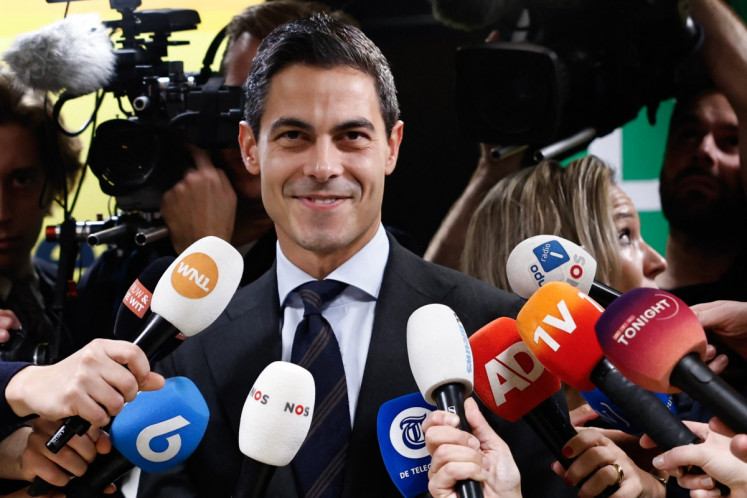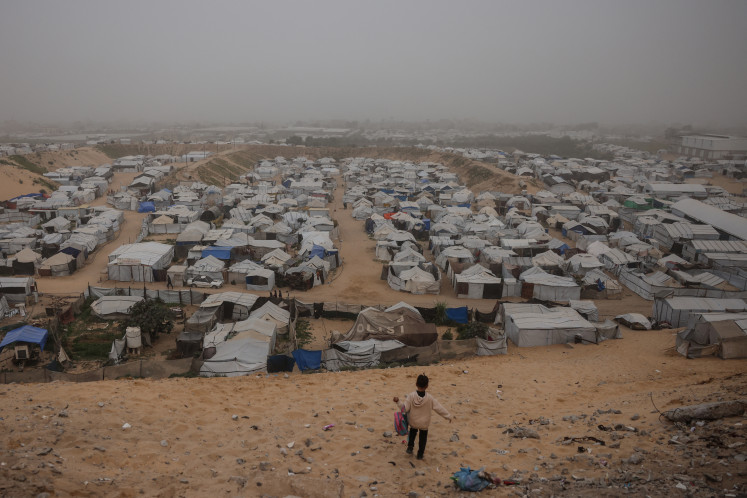Popular Reads
Top Results
Can't find what you're looking for?
View all search resultsPopular Reads
Top Results
Can't find what you're looking for?
View all search resultsThe four battles to follow during COP28
It is no longer enough to promise, as more than 70 countries do, to be carbon neutral by 2050 or 2060. Nations must negotiate the phase-out of the main contributor to global emissions, never mentioned in the Paris Agreement: fossil fuels.
Change text size
Gift Premium Articles
to Anyone
R
educe emissions, eliminate fossil fuels, supply developing nations with the means for a just energy transition... Here's a look at four highly contested issues of this year's COP28 climate negotiations in Dubai.
The beginning of the end for fossil fuels?
In 2015 ratifiers of the Paris Agreement pledged to limit global average temperatures, if possible, to 1.5 degrees Celsius above pre-industrial levels through national climate action plans to limit greenhouse gas emissions.
On current policy trends, the planet will warm by 2.8C by the century's end, according to the UN's IPCC climate science advisory panel.
It is no longer enough to promise, as more than 70 countries do, to be carbon neutral by 2050 or 2060.
Nations must negotiate the phase-out of the main contributor to global emissions, never mentioned in the Paris Agreement: fossil fuels.
Resources such as oil, coal and natural gas account for 80 percent of the world's energy consumption.
But COP26 in Glasgow only embraced a phase-down of "unabated coal" use. The future of oil and gas remained off the agenda.
That discussion can no longer be avoided at COP28, tasked with drawing up the first global stocktake of the Paris Agreement and identifying the necessary measures to correct course.
The states will not agree on a timeframe for the complete abandonment of hydrocarbons. But a number of countries, including the EU, will push for the virtual elimination of fuels burned without carbon capture and storage (CSS).
But by what date and at what pace remains to be decided. Nor is it clear what role emerging capture technologies -- often characterized as a loophole for emitters -- will play.
The conclusion of new projects or the reduction of subsidies and investments in this industry (1.34 billion dollars a year in 2019-21) will be a topic of bitter debate.
The goal is to map a path towards 43-percent emission reductions by 2030, compared to 2019.
Boosting renewables, everywhere
It is impossible to unplug oil and gas without building "the energy system of the future" or risk a global economic meltdown, COP28 President Sultan Al Jaber likes to remind the world. Jaber is also the head of the Emirati oil company.
The talks will therefore revolve around accelerating low-carbon energy technologies.
The aims include tripling the output of renewables by 2030, doubling the pace of energy efficiency progress by 2030, and promoting green hydrogen.
The problem is, the bulk of the essential energy transition has so far been limited to developed economies -- only two percent of investment in the sector has gone to Africa over the past decade.
The rest of the world will not accept any binding engagements without financial guarantees, or concessions on the use of gas as an intermediate energy source between the biggest pollutant, coal, and renewables.
There will be no agreement without the recognition of a "just energy transition" ensuring a path out of poverty.
Unlocking trillions of dollars
The United Nations Framework Convention on Climate Change (UNFCCC) provides the basis for the negotiations.
Since 1992, it has embraced the notion of climate justice: rich countries, responsible for most of the emissions and the crisis, owe the rest of the world financial and technological aid in return.
But talks have been held up by their failure to deliver on the 100 billion dollars promised in aid each year.
That promise has not been honored since 2020, when only 83 billion dollars were mobilized.
This aid, although set to increase in 2025, remains only a fraction of the funds needed.
More than 2,000 billion dollars will be required annually by 2030 to fund efforts to adapt to climate change and related aid for developing countries, according to the United Nations.
Implementing the 'loss and damages' fund
The announcement of a fund dedicated to compensating the "loss and damages" of victims of climate disasters was a major outcome of COP27 in Sharm-el-Sheikh, Egypt.
A year on, however, tense negotiations continue.
There is fierce debate over whether just the developed nations, historically responsible for the emissions, should pay, or whether China and the Gulf states should also contribute.
Nor has it been agreed whether all developing countries should benefit or only those deemed most vulnerable.
The international community has still to agree on where such a fund should be based. Some object to the World Bank, arguing that it is in Western hands.
They want to set up an independent institution, but that will take precious time.
But developing countries seem determined to ensure that by the time the Dubai meeting is over, such a fund is in place.










